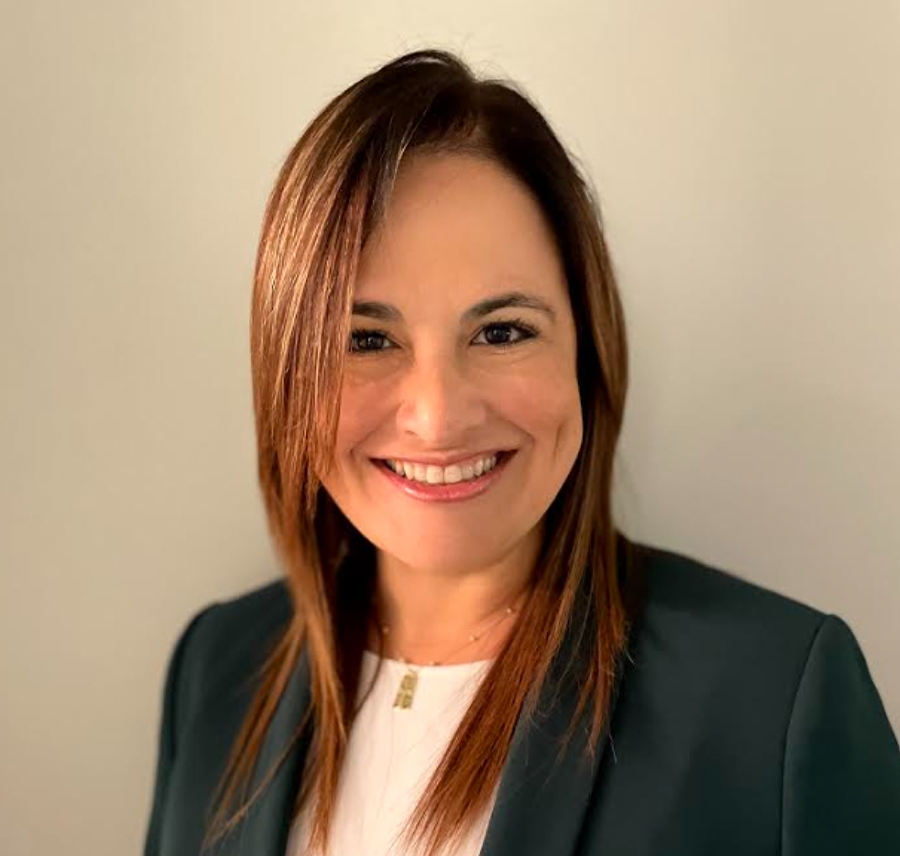Dr. Centeno-Vazquez Facilitates Survivors’ Return To Work
Maria Centeno-Vazquez, PhD, CCC-SLP, BCS-S, FASHA is looking for a new generation of scholars. This comes as no surprise to anyone who knows the Associate Professor and Program Director for the Speech-Language Pathology program A.T. Still University.
“We decide treatment plans based on needs. This means asking the question, ‘Based on your condition, what do you need to be successful in your environment?’ Although two people may have the same diagnosis, each may have different needs and goals that affect their treatment.”
Dr. Centeno-Vazquez Facilitates Survivors’ Return To Work
Maria Centeno-Vazquez, PhD, CCC-SLP, BCS-S, FASHA is looking for a new generation of scholars. This comes as no surprise to anyone who knows the Associate Professor and Program Director for the Speech-Language Pathology program A.T. Still University.
“We decide treatment plans based on needs. This means asking the question, ‘Based on your condition, what do you need to be successful in your environment?’ Although two people may have the same diagnosis, each may have different needs and goals that affect their treatment.”
As a panelist at the upcoming Brain Health Leadership Breakfast, presented by the Brain Injury Alliance of Arizona, she will offer her unique insights into how survivors can best return to work. She will be part of a panel of researchers from A.T. Still who are making headlines with their findings.
This prestigious annual breakfast, BACK TO BUSINESS, continues to be a beacon for businesses, the medical community, and community supports to work together as one. Presenters embrace their roles as guides for C-suite executives welcoming new and returning employees with various forms of brain injury. This includes those recovering from stroke, involved in car accidents, and have experienced an overdose. Experts will explore how all systems can work together in a more integrated fashion.
Carrie Collins, CEO of the Brain Injury Alliance, says, “We are honored to host such an important event as the term Back to Business has a positive connotation on various fronts: Employers are on the upswing while employees with brain traumas are getting back on track with their lives after an accident, illness, or injury.”
Carrie says it’s easy to quantify economic loss, “but each survivor impacts the community at large. Their injury denies those in their circles of their wisdom, experience, and insights. The leadership of the Brain Injury Alliance is doing everything in our power to make sure that is not lost.”
“Dr. Centeno-Vazquez is a perfect choice to be included in this panel. Her understanding of the cognitive effects of brain injury combined with her extensive experience training students in two languages makes her uniquely qualified to present advances in the field.”
Raised in Puerto Rico, Dr. Centeno-Vazquez was the first member of her family to go to college. After receiving her B.A. in Psychology and M.S. in Speech-Language Pathology from the University of Puerto Rico, After nearly two decades as a speech-language pathologist and in various supervisory positions, she earned her PhD in Communication Sciences and Disorders from the University of Cincinnati.
She now devotes the lion’s share of her efforts to help survivors of brain injury to become as productive as possible. This includes training students to understand the physical and cognitive impacts of injuries. In particular, she is enthusiastic about advances made in the evaluation of swallowing skills.
“The Flexible Endoscopic Evaluation of Swallowing (FEES) has made swallowing assessment much easier. Instead of having to be tested by a radiologist, patients can be tested by an SLP. It’s much simpler with fewer potential side effects.” She adds, “We can now ask patients to drink and swallow, which can tell us how they’re aspirating.”
Dr. Centeno-Vazquez also endorses the trend toward multidisciplinary teams. “I’m encouraged that the OT and PT work together with the other professionals. I don’t understand why everyone isn’t doing this! After a brain injury, we naturally focus on cognitive rehabilitation. This must be extended to everyone involved in recovery including families and caregivers.”
She says that when it comes to returning to work, many employees and employers take skills for granted. For instance, there needs to be a distinction between immediate versus long-term or working memory that allows one to work.
“Many survivors must deal with their affected ability to write, think, and process. Often, they can start projects but have difficulty finishing them. Therefore, we need to recognize cues to remember to remember, if you will.
“We decide treatment plans based on needs. This means asking the question, ‘Based on your condition, what do you need to be successful in your environment?’ Although two people may have the same diagnosis, each may have different needs and goals that affect their treatment.”
She stresses the importance of organizations like the Brain Injury Alliance that offer support and guidance throughout the recovery process. By relating to others in a similar situation, survivors realize that they need to go at their own speed.
“The biggest frustration is that many want their return to work to go from 0 to 100, and it just doesn’t work that way. It’s a gradual process, with adaptations on the part of employer and employee. For instance, they may suddenly react differently to loud noises.
“All parties must find ways to get back, with counseling and coordination, whenever possible.”
For more information about the 2023 Brain Health Leadership Breakfast: Back to Business
ABOUT BRAIN INJURY ASSOCIATION OF ARIZONA
The Brain Injury Association of Arizona (BIAAZ) is the only statewide nonprofit organization dedicated to improving the lives of adults and children with all types of brain injuries through prevention, advocacy, awareness and education. BIAAZ also houses the Arizona Brain Health Resource Center, a collection of educational information and neuro-specific resources for brain injury survivors, caregivers, family members and professionals.
What began in 1983 as a grassroots effort has grown into a strong statewide presence, providing valuable life-long resources and community support for individuals with all types of brain trauma at no charge.






